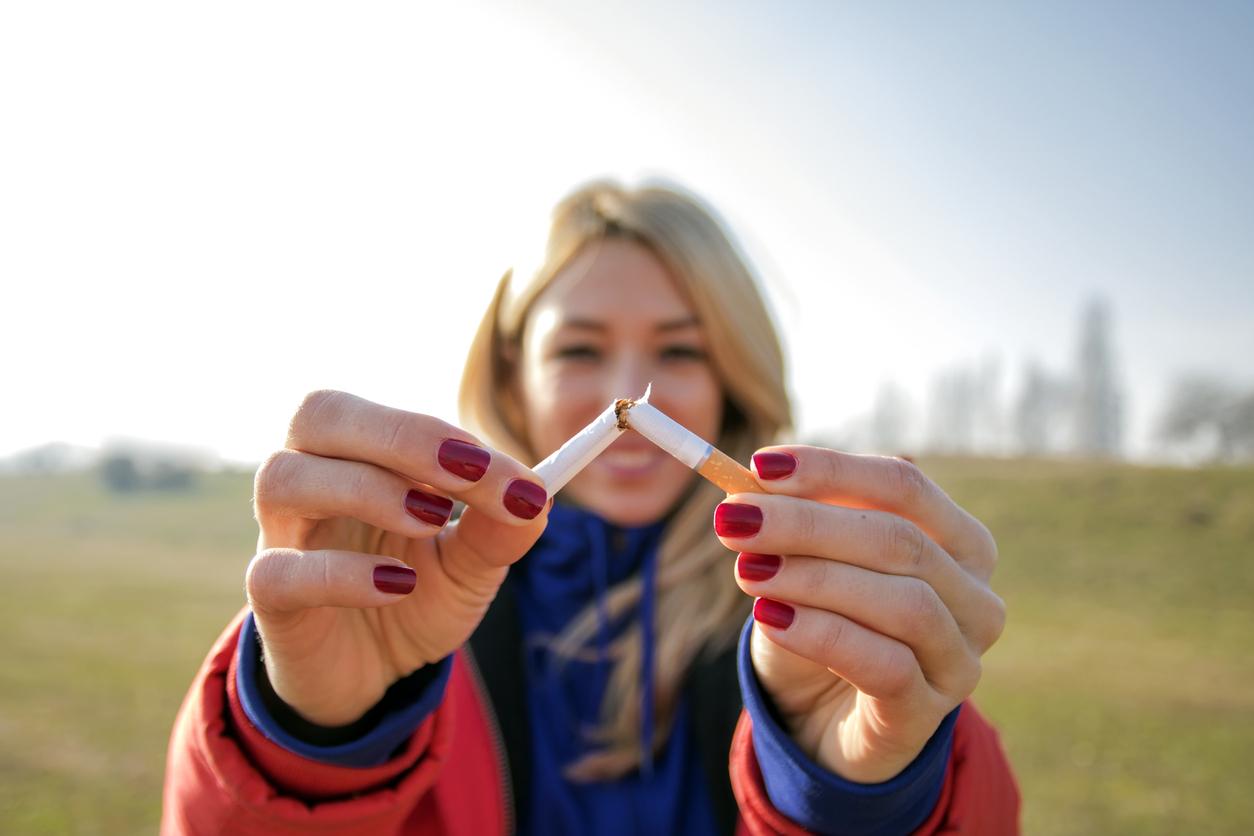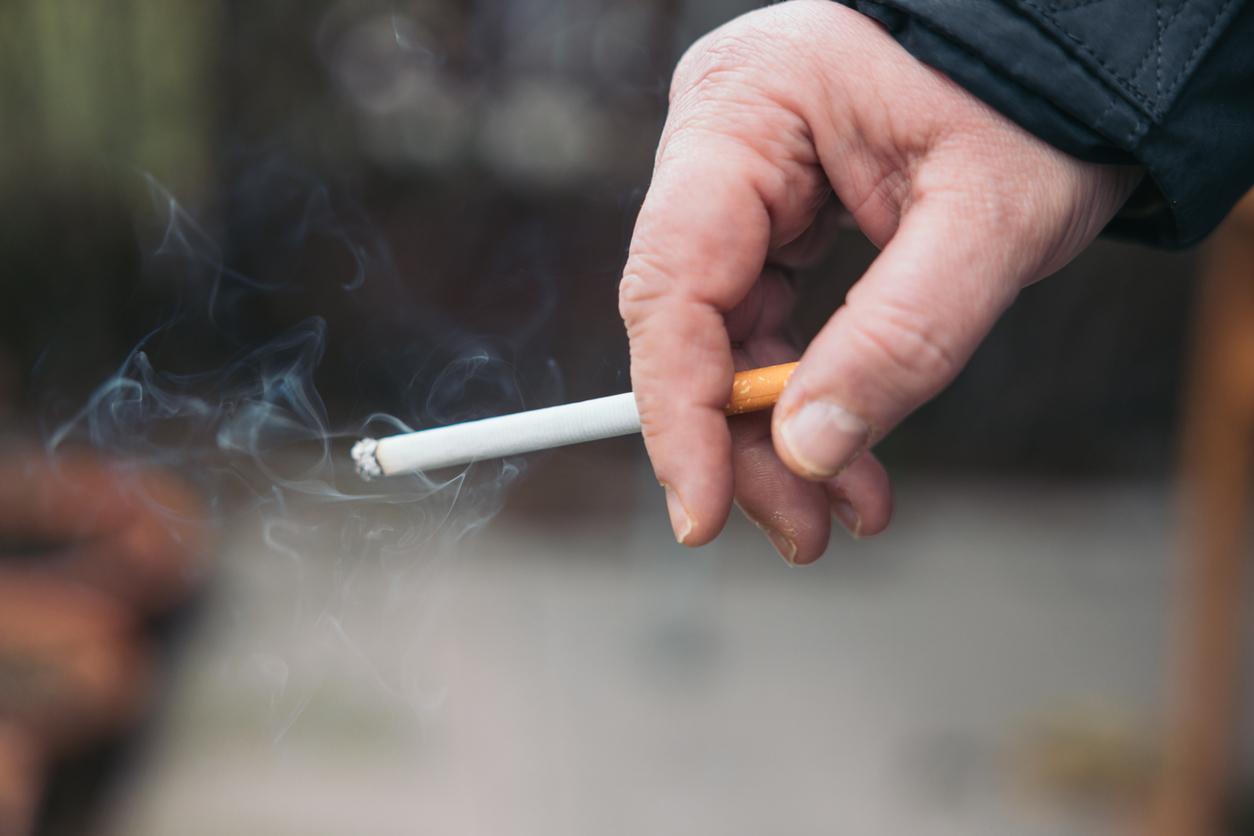France ranks 6th among the most moralizing European states, with too few results, estimates the Molinari Institute.
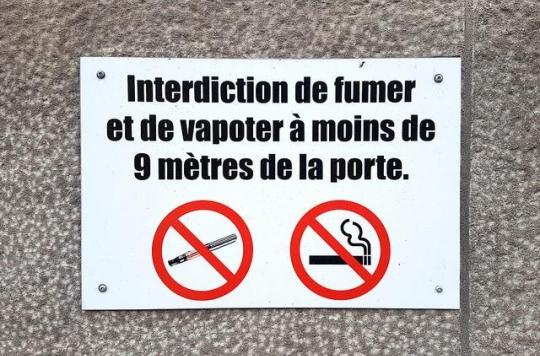
“Smoking kills”, “Do not eat too fatty, too sweet, too salty”, “Alcohol abuse is dangerous for your health, consume in moderation” … Warnings, sometimes directive, are multiplying on food products, tobacco and alcohol. Public policies (Evin law) also impose regulations on advertising, smoking in public places or taxes on the products concerned.
This interventionism places France in the leading pack of the 2nd edition of the indicator of moralizing states within the European Union, published by the Molinari Economic Institute. All criteria combined, it ranks in 6e position, behind Finland, which largely dominates the debates, the United Kingdom, Ireland, Hungary and Sweden.
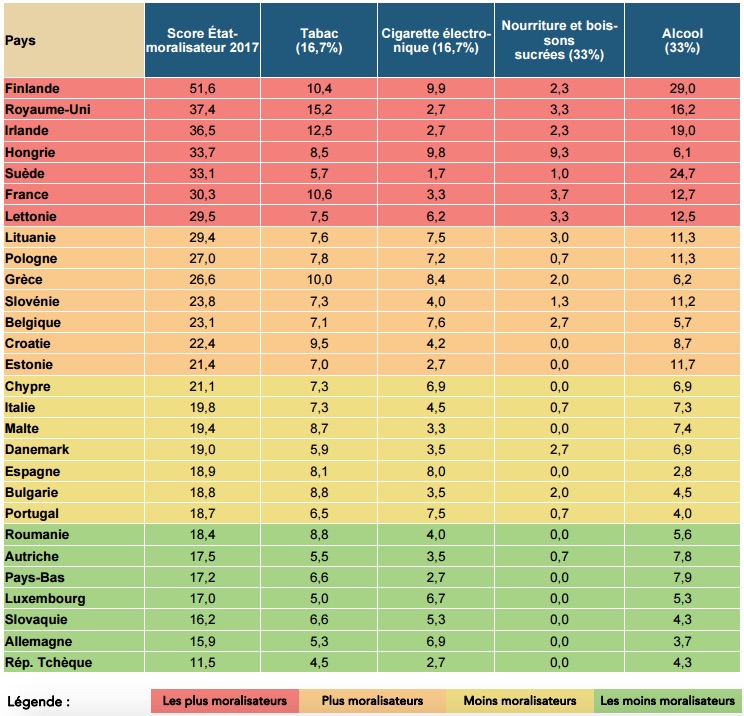
Its public policies are mainly restrictive for tobacco (3e), alcohol (5e) and food (2nd)
The French art of living
France notably imposes a tax of 8 cents on sweetened and energy drinks, has banned soda fountains, and is considering a tax on fast food and confectionery. She is also the 3e European country in the ranking of tobacco taxes, is one of the few to have imposed the neutral package, and strongly regulates alcohol advertising, recalls the Molinari Institute.
This think tank, which promotes at the media and political level a liberal vision of the economy and society, strongly criticizes this “low tolerance with regard to lifestyles”. She accuses him of harming “the art of living in the French, which has taken the lead in the wing.” He is worried about a global tightening, of the 28 European Union countries assessed, of regulations.
Molinari doesn’t like rules
Cécile Philippe, president of the Molinari Institute, believes that this trend has effects contrary to those expected, in particular in the development of parallel markets, such as for tobacco. “But the perverse effects don’t stop there,” she adds. A growing body of research shows that the rise of behavioral regulations is not reducing the risks for consumers. “
“There is no glory in being among the most moralizing countries in the EU,” said Christopher Snowdon, director of the lifestyle economics division at the Institute of economic affairs in London (United Kingdom), and who established this classification. Too many politicians seem convinced that citizens should be treated like children. The situation is getting tougher everywhere. It is regrettable, because these moralizing policies drastically reduce individual freedoms without showing any real effectiveness. “
The Molinari Institute prefers to retain the link between gross national income and life expectancy as “the only statistically significant relationship observed” in their analysis. We should therefore rather focus on economic growth than on the control of individuals, to conduct a good public health policy.
Effective measures
An astonishing statement, judging by the reports of the World Health Organization, which indicate that a 10% increase in the price of tobacco reduces consumption by 4%, and by 8% among young people. . Figures from the French Observatory for Drugs and Drug Addiction (OFDT) confirm this trend. Between 1990 and 2016, tobacco sales fell by more than 40%, from 100,000 tonnes to less than 60,000, with declines in sales strongly correlated with public actions.
In 2003, President Jacques Chirac “declared war on tobacco”: two years later, sales had fallen by more than 25% to reach a historic low for 50 years. The spectacular increase in the price of tobacco – from less than € 4 in 2002 to € 5 in 2004 – accompanied by other measures such as the total ban on smoking in schools, had therefore borne fruit.

On the alcohol side, prevention policies have instead focused on banning advertising. Once again, the Veil laws of 1976 and Evin of 1991 were accompanied by an accentuation of the drop in consumption. The relaxation of these regulations, under the influence of industrialists, which once again allow advertising for wines, beers and spirits to flourish on an increasing number of media, seem to be linked to a slowing down of this decrease.
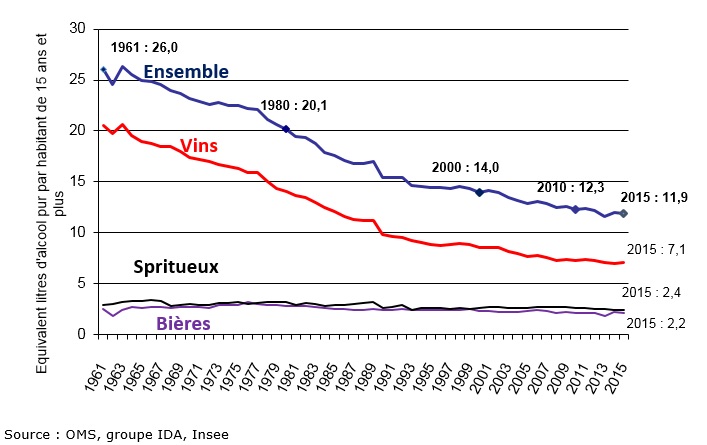
Conflict of interest
If certain factors can also explain these correlations – the rise in the price of tobacco increases the share of cigarettes bought abroad, alcohol consumption does not fall as sharply any more because a plateau is reached – it seems difficult to deny as categorically as the Molinari Institute does with preventive policies, even restrictive ones.
Not all actions are equally effective, and some are clearly more effective than others. But it is above all the combination of measures that seems to work, as the Australian example shows: neutral package, price increases of more than 10%, shock spots … If the prevention policies have partially failed, it is it is perhaps more on this side that they should be emphasizing.
But the liberal think tank is perhaps focused more on the economic interest than on the substance of health policies, and probably does not like having too many rules imposed.
Watch the program L’Invité santé
with Dr Laurent Chambaud
published on 05/31/2017
.












